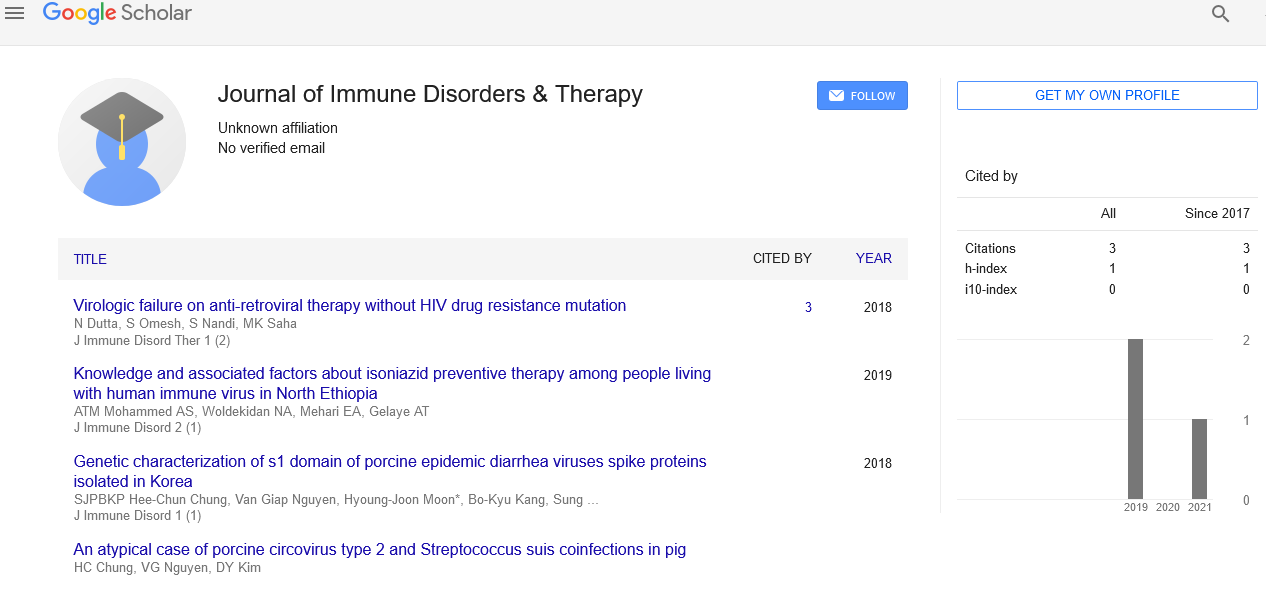
Sign up for email alert when new content gets added: Sign up
Molecular dynamics simulations reveal a common conformation in the Îò chain constant region in T cell receptor activation
9th WORLD CONGRESS ON IMMUNOLOGY AND CANCER
December 09-10, 2019 | Barcelona, Spain
Josephine Alba
Sapienza University of Rome, Italy
ScientificTracks Abstracts: J Immune Disord Ther
Abstract :
The adaptive immune response is one of the most important systems of defense against pathogens. In this contest, the ability of the CD8+ Cytotoxic T Lymphocytes (CTLs) to recognize a wide number of foreign antigens represents a strong defense against diseases. The T cells response is regulated by T Cell Receptor (TCR) activation, which may occur following the epitope recognition (p), mediated by the Major Histocompatibility Complex (MHC). Experimental studies have suggested that conformational changes involving the constant region of the TCR α chain and of the CD3 complex are responsible for the TCR transduction signal across the plasma membrane, i.e. triggering. These conformational changes allow the phosphorylation of the CD3 complex ζ chain and the propagation of the signal downstream. By means of Molecular Dynamic simulations (MDs) we analyzed the conformational behavior of two TCRs (1G4 and ILAα1β1) interacting with the same MHC of class I (HLA-A2*01), in a lipid environment. When compared to experimental results, our data suggests a correlation between the conformations explored by the β-chain constant region and T cell activity. In particular, independently by the TCR type involved in the interaction, the TCR activation seems to be linked to a specific conformation affecting the β-chain constant region. Moreover, combining experimental and theoretical studies, we recently noted that the bound peptide can affect the conformation of the MHC of class I binding groove, suggesting a different presentation of the antigens possibly related to different CTLs responses. From Molecular Dynamics simulations of the whole pMHC/TCR complex we found that the interaction pMHC/TCR constraints the MHC binding groove in a more rigid conformation, contrary to our recent prediction where the MHC of class I (HLA -B27*) has been simulated alone.
Biography :
Josephine Alba is a 2nd year-PhD student in Chemical Sciences at the University of Rome “Sapienza”, under the supervision of Prof. Marco D’Abramo. Her PhD project, titled “The effect of the conformational behavior of TCR related proteins on their function: a computational approach”, is focused on the structural-dynamical characterizations and the study of thermodynamic properties of the T-cell receptor related proteins (such as pMHC and Src family Kinase proteins) by means of theoretical-computational approaches. She was recently granted by EMBO short term fellowship to spent three months in the group of Prof. Miquel Pons, in Barcelona, for a project related to the structural characterization of the c-Src Kinase. The research group has active international collaborations with top-groups in the fields of molecular immunology (Prof. Oreste Acuto - University of Oxford and Prof. Wolfgang Schamel-University of Freiburg) and molecular biology (Dr. Maria Teresa Fiorillo - University of Rome “Sapienza”).
E-mail: josephine.alba@uniroma1.it




